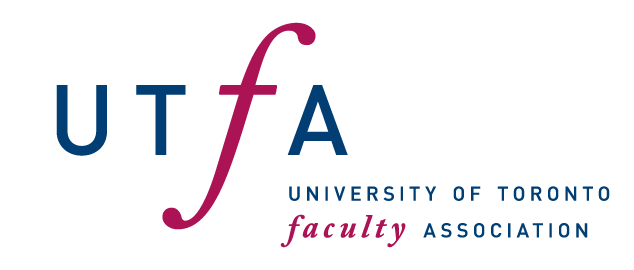As an UTFA member, you have rights you can assert in this situation, including these:
-
CONSIDERATION OF MEDICAL EVIDENCE: You have the right to have the University’s Health & Well-Being Office (HWB) consider the medical evidence you submit – in fact, this is a legal obligation of the University. Medical notes, letters, or forms regarding your disability-related needs form the basis of your accommodation request.
-
CONFIDENTIALITY AND PRIVACY: You have the right to have your personal medical information protected by doctor-patient confidentiality and privacy legislation. You do not need to disclose or discuss medical details with your supervisor, manager, Chair, Dean, Principal, or other member of the Administration: in fact, your medical information should only be sent to HWB. HWB is only entitled to medical information that is directly relevant to your accommodation request, and typically includes a general description of the nature of your condition, your functional restrictions, and your prognosis. You do not have to disclose your diagnosis, symptoms, or medications. In practical terms, this means that you are not required to share that you have been diagnosed with (for example) osteoarthritis. Instead, you and your doctor could share in general terms that you have “a physical condition,” and the list of functional restrictions might include “difficulty standing or writing for periods longer than [#] minutes.”
-
PARTICIPATION: You have the right to participate in the search for and development of suitable accommodations.
-
REASONS: You have the right to request additional information before responding to HWB. HWB is required to provide a reasonable justification if they reject your medical evidence, ask you for additional medical information, or deny an accommodation request. You can ask HWB to explain the basis for their decision or the grounds for their request. We recommend consulting with a representative from UTFA’s Legal & Advice team (“UTFA L&A Rep”) before responding to a request or decision from HWB.
-
TIME TO SEEK ADVICE: You have the right to seek UTFA’s support before responding to emails or calls from HWB. You can use wording like this: “I have received your request. I will get back to you after I have had the opportunity to seek advice from my faculty association.”
-
UTFA REPRESENTATION: You have the right to have a representative of UTFA’s Legal & Advice team assist you during the accommodations process. While UTFA representation is not necessary in a majority of circumstances, UTFA’s L&A reps have in-depth knowledge of University of Toronto policies and practices and an understanding of the University Administration’s duty to accommodate under Human Rights legislation and can use this knowledge to assist you if you face difficulties in the process. In these cases, the UTFA L&A Rep can help you submit medical evidence, respond to HWB, and negotiate an appropriate accommodation plan. To reach an UTFA L&A rep, write to advice@utfa.org with a copy of your correspondence with HWB and any other relevant information.
-
TIMELY DECISIONS: You have the right to receive workplace accommodations on a timely basis. Unreasonable delays in processing your request could constitute a breach of your rights. In some cases, accommodations can be put in place on an interim basis to reduce the impact of a delay (e.g., if you are waiting for an appointment with a specialist). We recommend that you contact UTFA at the earliest signs of difficulty so that an UTFA L&A Rep can help keep the process moving.
-
A FAIR AND REASONABLE PROCESS: You have the right to have your accommodation request considered in good faith and to have the HWB explore all reasonable accommodation options. This means that HWB, in consultation with you and your department or unit, must conduct an individualized inquiry to determine how your working conditions could be adjusted to appropriately accommodate your medically-supported restrictions.
Ultimately, it is the Administration’s legal obligation to accommodate you to the point of undue hardship. The individualized nature of the process means that every accommodation plan will be different. While there is no complete list of potential accommodation options, the following accommodations are relatively common:
-
modified equipment for a lab or other research spaces;
-
increased TA/grading support;
-
increased assistance from research assistants or postdoctoral fellows;
-
specialized equipment, software, and training;
-
modified teaching spaces and schedules;
-
modified teaching assignments;
-
class enrolment caps;
-
deadline extensions;
-
modifications to the nature and volume of service assignments;
-
changes to the mode of course delivery;
-
a redistribution in the balance of the UTFA member’s three principal duties.
In many cases, accommodations like the ones listed above can be implemented without any change to your salary and benefits; others (such as a reduction of overall workload or a shift from full-time to part-time status, typically would have salary implications. We recommend consulting with an UTFA L&A Rep for assistance in negotiating a plan that suits your individual needs.
Any questions about the accommodation process that are not answered here? Please contact advice@utfa.org for more information.
This is the second in a series of “Know Your Rights as an UTFA Member” communications prepared by the University of Toronto Faculty Association (UTFA). It was created in response to UTFA members’ questions and concerns regarding the Administration’s accommodation processes and practices.
This communication has been provided for general informational purposes only and should not be considered or relied upon as legal advice or opinion.
[Last Updated October 2025]
